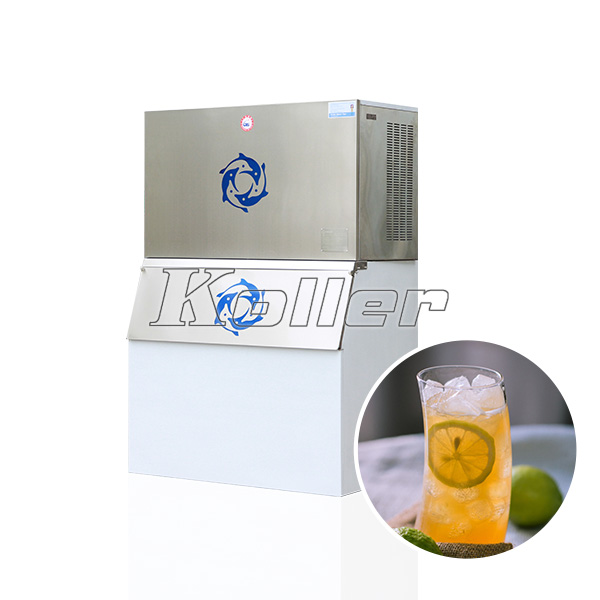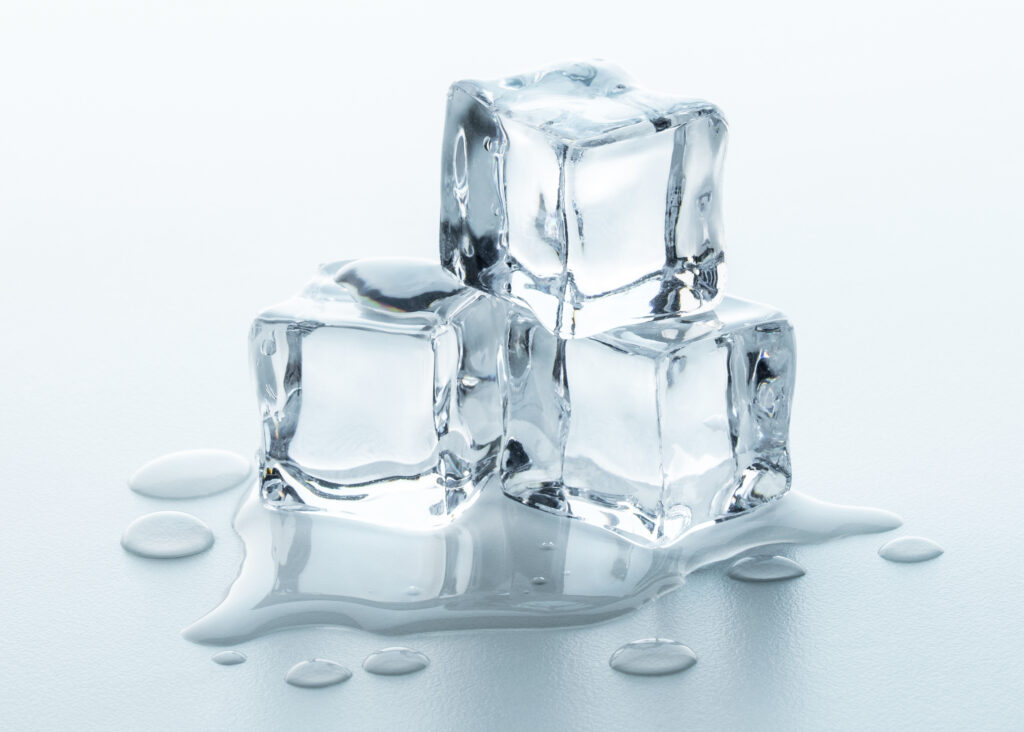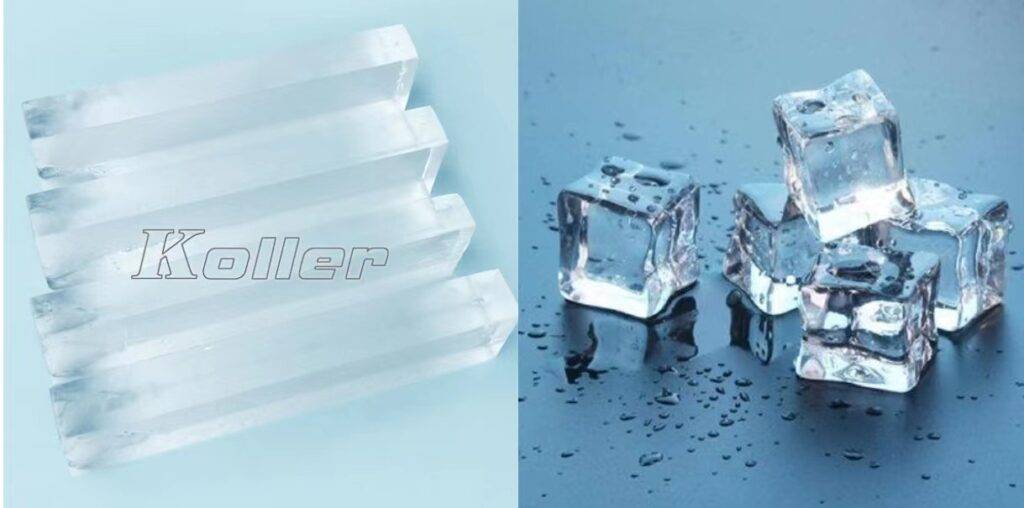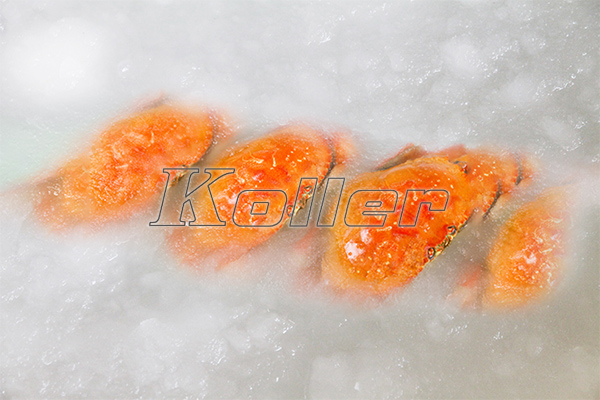
In today’s rapidly advancing industries, industrial ice solutions play a crucial role in ensuring the smooth operation of various processes. From food processing and storage to concrete construction and healthcare facilities, the reliable availability of high-quality ice is essential in preserving perishable goods, maintaining optimal temperatures, and enhancing efficiency.
In this article, we aim to delve into the world of industrial ice solutions and specifically compare two commonly used types: flake ice and nugget ice. By examining their unique characteristics, benefits, and applications, our goal is to help you understand the differences between the two and determine which type is the best choice for different industrial requirements.
Overview of Flake Ice
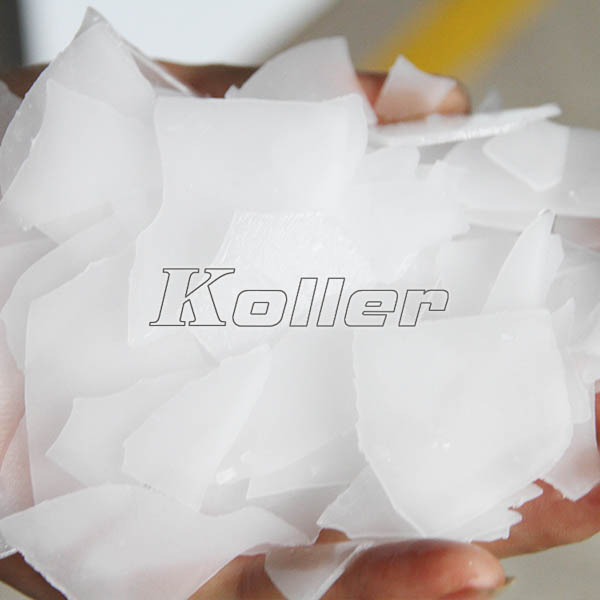
A. What is Flake Ice?
Flake ice refers to ice that has a thin, flat shape resembling small, irregular flakes or chips. It is produced by spraying water onto a cooled surface, which freezes and forms a layer of ice. These ice layers are then scraped off in the form of delicate, paper-thin flakes.
B. The Production Process and Advantages of Flake Ice
The production process of flake ice involves several stages. First, water is pumped into the flake ice machine‘s evaporator plate, which is typically chilled by a refrigeration system. The evaporator plate freezes the water into a thin layer of ice. Then, the ice is scraped off using an ice knife, forming the desired flake ice.
One of the major advantages of flake ice is its exceptional cooling capabilities. Due to its large surface area, flake ice rapidly absorbs heat and effectively chills products or substances. This makes it an ideal choice for industries such as seafood processing, where maintaining freshness and preserving product quality is crucial. Additionally, its malleable nature allows it to mold easily, making it widely used in food displays and certain manufacturing processes.
C. Common Applications of Flake Ice
- Seafood markets and processing plants: Flake ice is widely used in the seafood industry to keep products fresh during transportation, storage, and display.
- Concrete construction: In construction projects that involve concrete pouring, flake ice is used to cool the mixture, preventing premature hardening and ensuring proper curing.
- Medical and healthcare: Flake ice is utilized in medical facilities to preserve medications, vaccines, and laboratory samples at low temperatures.
D. Features and Benefits of Flake Ice
- Excellent cooling properties: Flake ice’s high heat transfer rate ensures efficient cooling, making it an optimal choice for a range of industrial applications.
- Versatility: Flake ice can be easily molded to fit different shapes and spaces, providing flexibility in various industries.
- Hygiene: The production process of flake ice involves purified water, ensuring a clean and hygienic ice product.
Overview of Nugget Ice
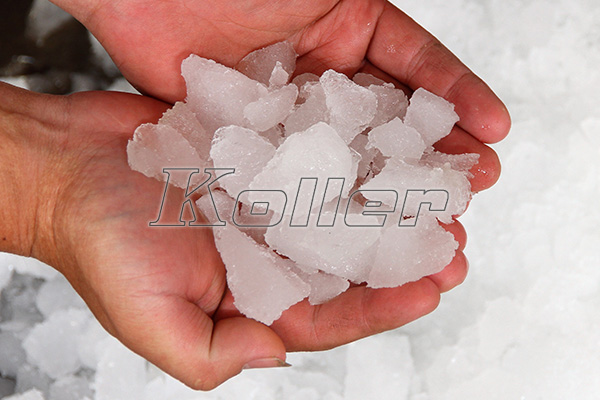
A. What is Nugget Ice?
Nugget ice, also known as pellet ice or chewable ice, is small, round-shaped ice that resembles tiny pieces of hail. It is created by compacting flakes of ice together, resulting in soft and chewable ice pellets.
B. The Production Process and Advantages of Nugget Ice
The production of nugget ice involves compressing flake ice into small, tightly packed pellets. These ice pellets are softer than traditional ice cubes and have a unique texture that is sought after in the beverage industry.
Nugget ice offers several advantages, including a slower melting rate compared to other ice types. This slower melting rate ensures longer cooling periods, making it a popular choice in settings where extended preservation of freshness is required. Additionally, nugget ice blends well with beverages and retains flavors, making it the preferred ice type for bars, restaurants, and convenience stores.
C. Common Applications of Nugget Ice
- Beverage industry: Nugget ice is widely used in bars, restaurants, and cafes to enhance the appeal of drinks and provide customers with a unique drinking experience.
- Healthcare facilities: Nugget ice is commonly used in healthcare settings to provide patients with hydration and maintain the freshness of medications.
- Salad bars and buffet displays: Nugget ice is an excellent choice for salad bars and buffet displays, keeping food fresh and enticing.
D. Features and Benefits of Nugget Ice
- Unique texture: Nugget ice’s soft and chewable texture is highly appreciated in the beverage industry, providing a pleasant and enjoyable drinking experience.
- Longer cooling periods: Nugget ice has a slower melting rate, ensuring beverages remain chilled for extended periods.
- Flavor retention: Nugget ice retains the flavors of beverages, preventing dilution and maintaining the integrity of the drink.
In the next section, we will compare and analyze flake ice and nugget ice in different aspects, helping you decide the best fit for your industry needs.
Comparison: Flake Ice vs Nugget Ice
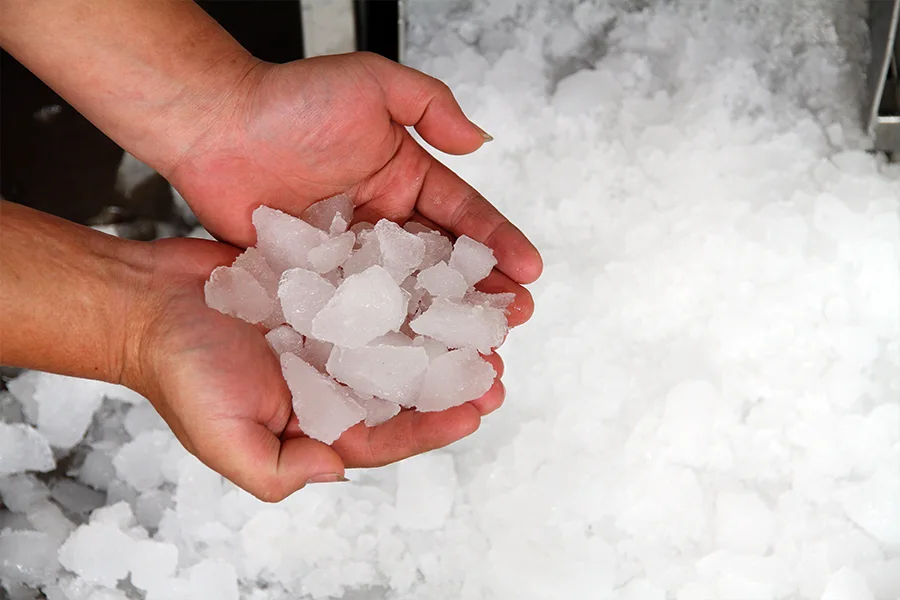
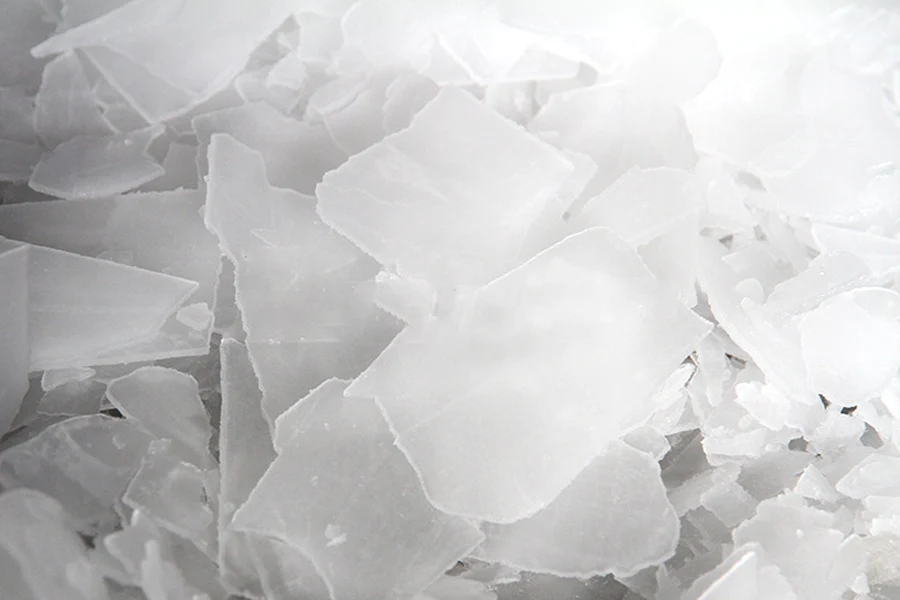
A. Visual Appearance and Texture
Flake Ice: Flake ice has thin, flat flakes with irregular shapes. These flakes create an aesthetically pleasing display and effortlessly fill up containers. Additionally, the flake nature of the ice allows for easy molding into various shapes, maximizing its usage in different industries.
Nugget Ice: Nugget ice consists of small, rounded pellets with a softer texture. It adds an appealing visual element to beverages and cocktails, enhancing the overall drinking experience. The chewable nature of nugget ice makes it a hit among customers who enjoy the unique texture.
B. Cooling Efficiency
Flake Ice: Flake ice excels in its cooling capabilities due to its large surface area. It has the ability to quickly transfer heat, which makes it suitable for industries requiring efficient cooling. This includes seafood processing, concrete construction, and transportation of perishable goods.
Nugget Ice: Nugget ice offers a slower melting rate compared to other ice types, allowing for extended cooling periods. It promotes even cooling distribution in liquids without diluting flavors, making it a preferred choice in the food and beverage industry.
C. Ice Clumping and Handling
Flake Ice: Flake ice tends to clump together due to its thin and light structure. This can be a potential challenge, requiring regular raking or mechanical loosening to prevent blockages and ensure smooth ice flow. However, despite this drawback, the benefits of flake ice make it worthwhile for many applications.
Nugget Ice: Nugget ice, on the other hand, is less prone to clumping due to its compacted nature. It flows freely, making handling and dispensing convenient. The ease of handling and minimal maintenance required make nugget ice an ideal choice for high-demand environments.
D. Versatility and Applications
Flake Ice: Flake ice is well-suited for industries such as seafood markets, fishing vessels, and food processing. Its quick cooling and moldability make it indispensable in concrete cooling during construction projects. Additionally, flake ice finds applications in medical facilities, transporting and storing sensitive pharmaceuticals.
Nugget Ice: Nugget ice is the preferred choice for the beverage industry, including bars, restaurants, and convenience stores. Its unique texture and ability to blend well with beverages make it ideal for refreshing mixed drinks or cocktails. Nugget ice also finds applications in salad bars, buffet displays, and healthcare facilities for hydration and medication temperature maintenance.
By understanding the specific requirements and needs of different industries, you can determine the best ice choice between flake ice and nugget ice for your particular application.
Conclusion

In conclusion, both flake ice and nugget ice offer remarkable benefits and serve distinct purposes in various industries. The choice between the two depends on factors such as cooling efficiency, visual appearance, handling convenience, and intended applications.
We hope this comparison has provided you with valuable insights to make informed decisions when selecting industrial ice solutions. For further assistance or detailed information tailored to your industry needs, please feel free to reach out to us.

